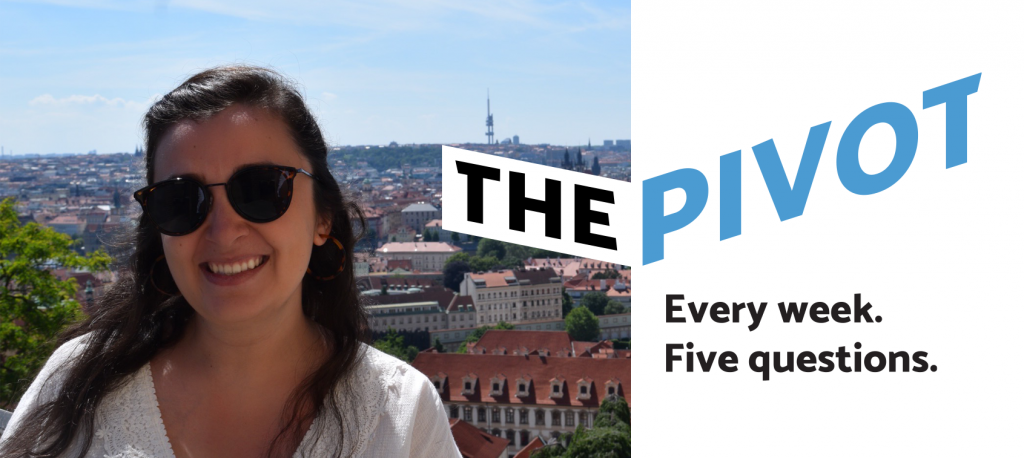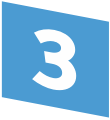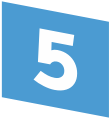
Vanessa Rivero is bringing women’s health back into maternal and child health.

What’s your role in public health?
I’m a second year Master of Public Health student in the Department of Maternal and Child Health (MCH). Coming into school, I was straight out of undergraduate studies at UNC — yep, I’m a double Tar Heel! As an undergrad, I did a lot of work with families affected by cancer. When I was applying to grad school, I knew I wanted to study women’s health, but I was a little bit worried that maternal and child health would be too niche for my interests. Happily, since then, I’ve learned so much about how maternal health isn’t indicative of only the nine months when women are pregnant. In a nutshell, all the research concludes that a woman who is healthy before pregnancy makes for a healthier mom and infant throughout the life course.
Now, I work with the National MCH Workforce Development Center within their development team. Basically, we help state agencies with Title V funding complete health transformation projects. I do a lot of program planning and evaluation work for government programs, which is great practice for my future career.

Can you describe your focus area in one sentence?
I’m bringing women’s health back into maternal and child health.
Title V is a federal grant given to state governments that can match funds at the local level. It supports programs across the spectrum of maternal and child health. That includes preventative women’s care all the way to serving children with special health needs. Overall, Title V is extremely underfunded, so the MCH Workforce Development Center provides coaching and other resources for free to state-level programs.
Here’s one example of how a Title V program can work by moving the focus further “up the river” of care: Over the summer, I worked with Alabama’s Title V Program — it’s called their Well Woman Program. They provide free preventive care to women ages 15-55 years old in an effort to reduce negative birth outcomes and poor maternal outcomes. During the pandemic, they have pivoted from in-person sessions to Zoom-based classes that share healthy eating habits with community members. The group-based nutrition education reaches far more people — for far less money! — than providing one-on-one sessions with a nutritionist.
There’s a strong health equity component to Title V programming. We think deeply about the social determinants of health and, ultimately, are working toward better holistic health care for all people.

What brought you to public health?
My mom passed away from breast cancer when I was 11 years old. I worked with Camp Kesem throughout undergrad — it’s a program run by college students that provides week-long, free getaways for kids whose parents are affected by cancer. Of course, I related to the campers! I saw how strong they were and understood their struggle, and I continue to look to them for inspiration. Since that experience, I’ve known my career path would intertwine with cancer prevention.

How have you pivoted in response to the coronavirus pandemic?
Back in January, I was applying to practicum experiences. I wanted a Title V internship, which pairs undergraduate and grad students together at state agencies — but then the edict came down that I couldn’t leave North Carolina. Luckily, I still got placed to work remotely with the Alabama Department of Public Health in Montgomery. I did everything via Zoom while living in a different time zone, and I learned a lot about navigating work-life balance!
Above all, I wanted to be a good mentor to my undergrad partner, and I had to figure out how to do that without ever meeting her in person. She had very limited exposure to maternal and child health, so I was able to offer a lot of guidance. It was difficult, but I actually think I focused more on coaching her because we were long-distance, and motivation was especially needed in a virtual format.
I also loved working with the Alabama team, but here’s a fun fact: I have no idea what one of my preceptors looks like because none of their state-appointed computers had webcams! (Remember when I talked about these programs being underfunded?)

Who are you when you’re at home?
I’ve become a plant mother! I guess I needed something to nurture during the pandemic. I also have a part-time job with Kidzu, the Chapel Hill children’s museum, doing communications and moving all their programming online for the time being. Like a lot of people, I’ve also gotten into yoga and baking. I’ve definitely burned some bread!
I will say, working from home has given me ideas about my future career. I don’t think working a 9-5 job with a set lunch break would be great for my physical or mental health. I want to fit work into my broader life, rather than planning my entire life around my work.
